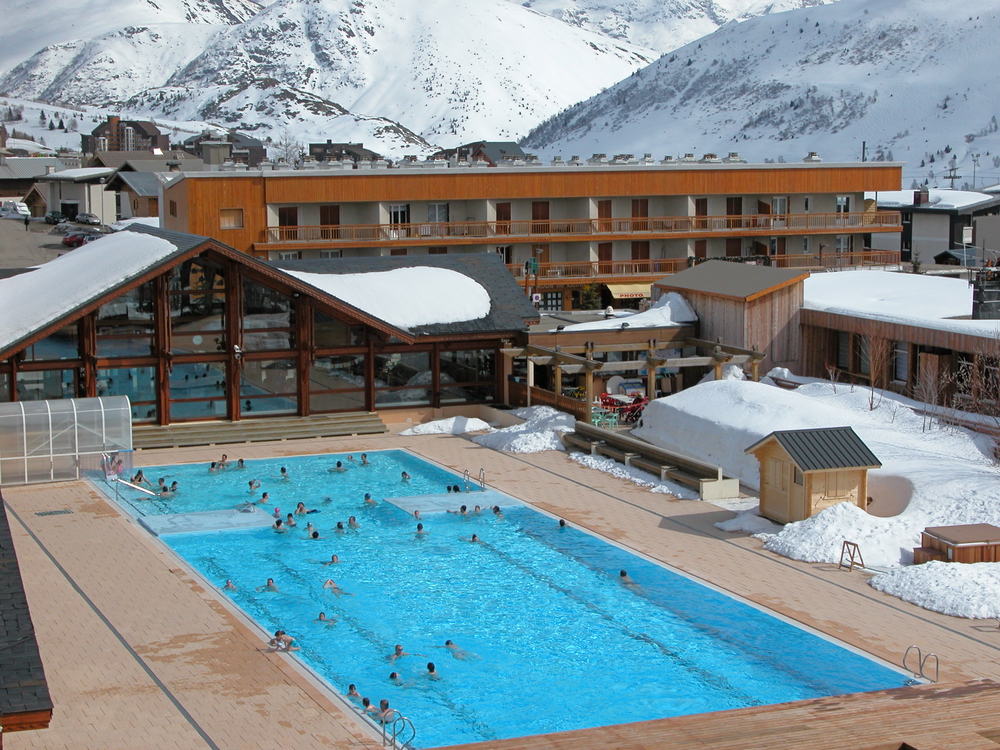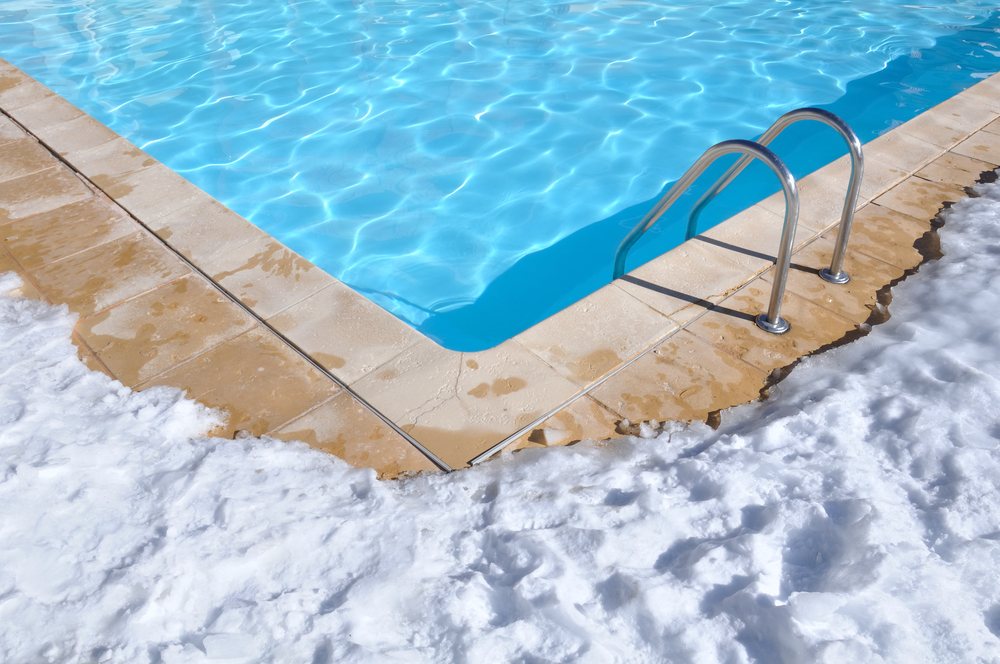As winter approaches, one thing weighing on the minds of every pool owner is how to prevent pool freeze damage and avoid costly repairs.
Here are five ways how to help you prevent your swimming pool and your pool’s equipment from freeze damage during winter.
Winterize Your Pool
One way to protect your pool and its equipment from freeze damage is to winterize your pool even before winter begins entirely.
Start by first clearing out all the debris skim away any frost that began to form on your pool’s surface. Drain out the water from your pool pump, filter, heater and other pool equipment fixed above ground. Blow out any water from the pipes to make sure that there is no water in them.
Once you’ve done that, funnel in some pool antifreeze into your pool’s water to further minimize the chances of your pool’s water from freezing. Make sure that the pool’s water is at the right level to protect the tiles from cracking.
Finally, cover your pool with a winter pool cover to protect it from the cold temperatures.
 Keep the Pool Pumps Running
Keep the Pool Pumps Running
If you live in a region where there winter temperatures drop to below freezing and are susceptible to winter storms, make it a point to keep your pool pumps running 24/7. This will maintain the water in your pool running continuously, which will prevent it from freezing.
Invest in an Automatic Freeze Guard
A freeze guard or freeze protector is a device that detects when temperatures are starting to fall dangerously close to freezing temperatures. When that happens, it automatically starts up your pool pump to keep the water flowing until the outside temperatures become warm enough that it’s safe for your pool pump to close.
Keep your Pool Clean
Even with a winter pool cover, there is still a chance that a thin layer of ice can form on the pool’s surface. Make it a point to regularly skim your pool to get rid of this so that they don’t get into your pool’s equipment.
When cleaning your pool, always make it a point to check the water to ensure that it’s still at the right level.
Cold temperatures cause things to expand, including the soil that surrounds your inground pool. When this happens, it pushes against your pool’s edges which can cause the tiles to crack. Keeping your water at the right level gives just enough pressure to balance against the pressure coming from the ground. This will help protect your pool’s tiles from cracking.
Shut the swimming pool down during power failures
Winter snow storms can cause power failures, which can easily spell disaster for your swimming pool.
If you don’t have a home generator, brave the snow storm and shut the power off from your circuit breaker. Remove the screws from the drain plug of your pool pump and pool heater. Open up any closed valves, including the pool filter air bleeder.
When the power comes back on, replace all the plugs you removed. Prime up the pool pump and then start it up.
What Happens If The Pool Is Already Frozen?
Whether you were not able to winterize your pool in time or returned from a long vacation, here are the steps on how you can minimize freeze damage on a frozen pool.
- Turn off the power at your circuit breaker.
- Get some thick wool blankets from your home and put these over all of your pool equipment above ground to form a tent.
- Place a small portable heater inside the tent you’ve created. You can get one from your local home depot.
- Keep a close eye on the equipment as it thaws.
- Once your pool equipment is fully thawed, inspect the pipes and connections for cracks carefully. If you find any, drain out this equipment thoroughly and contact your local pool repairman to have these fixed.
One Final Note
While there is no full-proof way to keep your pool from freezing during winter, these steps can significantly help protect your pool and its equipment from freeze damage, which can easily set you back hundreds, if not thousands, of dollars to repair and replace. To be safe it is always best to contact your pool professional for advice.

